BANGKOK, 9 July 2024: Seeing Yaowarat Road deserted of people and traffic is rare, except perhaps during the Covid-19 pandemic or when the Chinatown street featured in Lisa’s* recent music video ‘Rockstar,’ where she appears in the middle of a traffic-free Yaowarat.
The flashy video transformed this 132-year-old street into a stage for Lisa’s globalised performance, with the familiar backdrop of neon lights highlighting this historic, vibrant street.
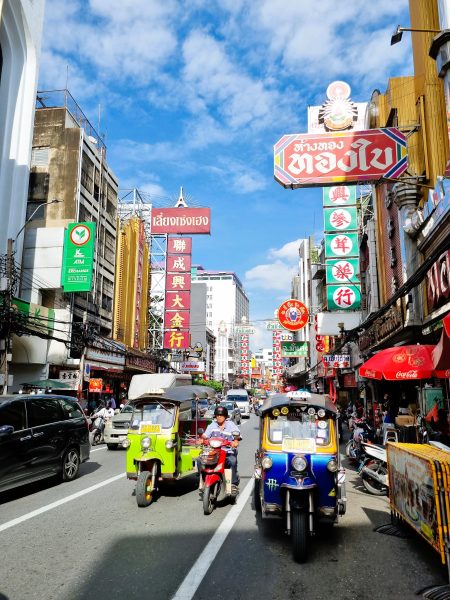
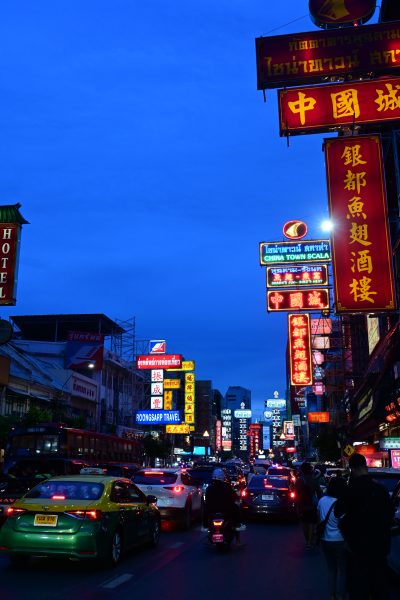
With the establishment of Chinese communities in Thailand after the founding of Rattanakosin during King Rama I’s reign, Chinese immigrants initially settled near the Grand Palace area. Following the palace’s construction, they relocated to Sampeng, forming a new community.
Later, between 1892 and 1900, Yaowarat Road was constructed during King Chulalongkorn’s reign (King Rama V), becoming a vital trade centre between the Chinese and foreigners.
Yaowarat has witnessed change throughout the eras. Yet, at its core, it remains a commercial centre for the Chinese and Thai-Chinese communities. Historically, the area served as a crucial trading hub for imported goods from China and its profusion of gold shops, earning Yaowarat the nickname “the Gold Road,” Even today, the gold shops remain the most prominent businesses along the historic trading street.
*Lalisa Manoban, also known as Lisa, is a 27-year-old Thai rapper, singer, and dancer. She is a member of the internationally known K-pop group Blackpink. Lisa recently made her solo debut with the single “Rockstar,” which was released on 28 June 28, 2024. The music video was shot in Bangkok’s Yaowarat district and gained over 85 million YouTube views on 7 July.

The charm of Yaowarat lies in its vibrant tapestry of past and present. Generations weave together, with modern shops nestled beside those preserving their heritage. Faded photographs displayed within shops and original wall tiles evoke a sense of nostalgia, whispering tales of Yaowarat’s long history.
The Yaowarat market showcases the continuous cultural life of the Chinese community, selling everything for life’s milestones, from daily necessities to joss papers. Here, handmade Chinese traditional clog shoes are found alongside flowing cheongsams, while the air is filled with pungent pickles and herbal medicines. This vibrant space caters to everyone, whether seeking a cultural experience or simply wanting to reminisce about childhood memories.
Even for visitors unfamiliar with Chinese culture, Yaowarat offers a multitude of day-trip activities. Art galleries and graffiti art coexist with trendy cafes and bars in classic buildings. Classic noodle bowls and a wide variety of street foods — Yaowarat’s true rockstars —await exploration by visitors.
Visiting Yaowarat is easy via the MRT Blue Line. Visitors stepping out at Wat Mangkon Station on Charoen Krung Road are immediately greeted by Yaowarat’s vibrant energy. Bustling food stalls, shops, hidden museums, and even Michelin-recommended restaurants are all within easy reach.
Capture Yaowarat’s Endless Story Through the Lens
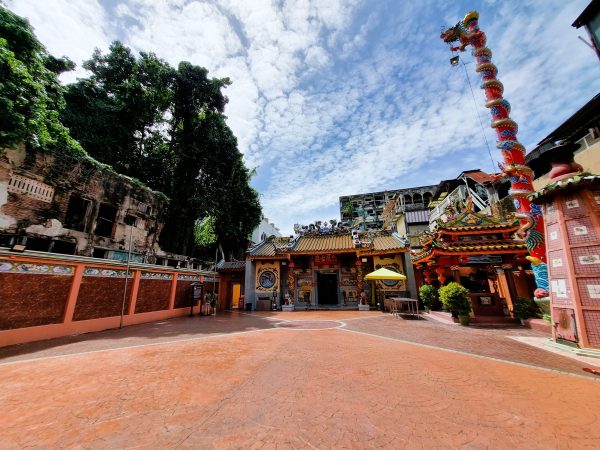
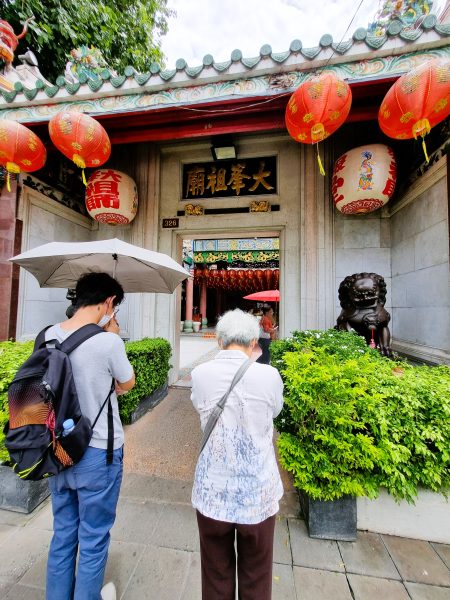
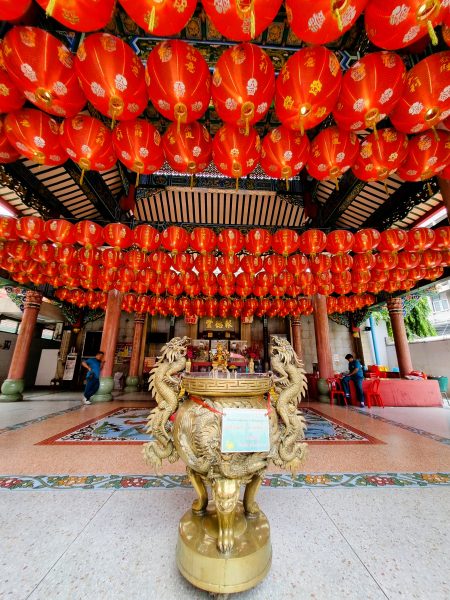
Yaowarat’s temples and shrines, such as Wat Mangkon Kamalawat, Kwang Tung Shrine, Lee Ti Miew Shrine, Tai Hong Kong Shrine, and Leng Buai Ia Shrine, showcase ancient rituals blending with the vibrant pulse of Bangkok’s Chinatown. Leng Buai Ia Shrine, at Charoen Krung 21, is the oldest Chinese shrine in Thailand, with a plaque dating its construction to 1658.
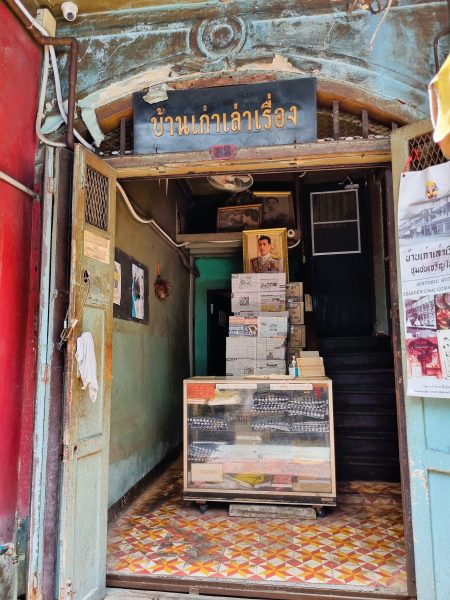
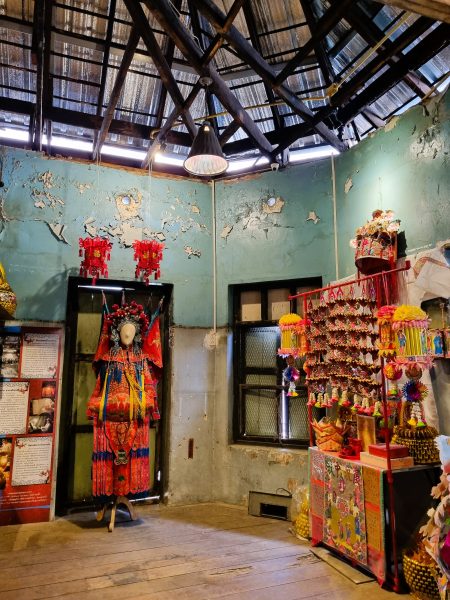
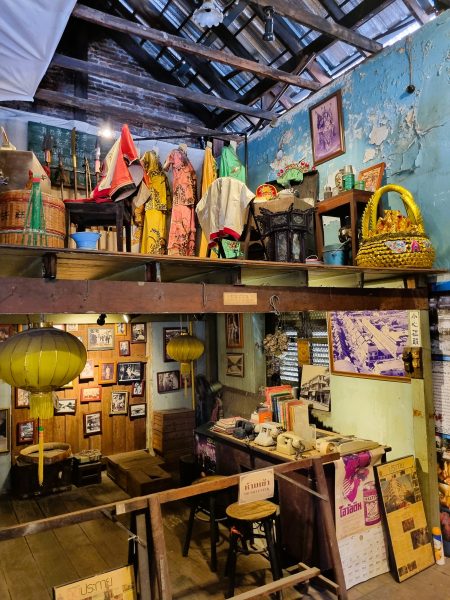
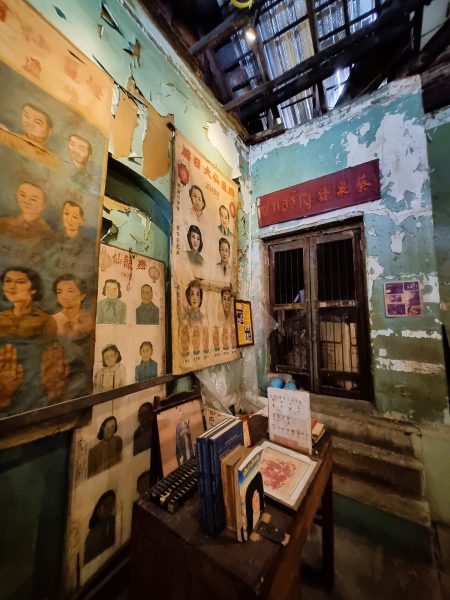
Hidden among the joss paper shops in Charoen Chai Alley (Charoen Krung 23), Charoen Chai Community Museum is the first and only community museum in Chinatown. This little historic row house tells the story of the opera artists’ families who once lived there.
The Yaowarat marketplace is a vibrant hub of traditional Chinese culture. Brightly coloured stalls overflow with an array of items, from everyday necessities to religious symbols. Shoppers can find an assortment of red and gold decorations, paper goods for ceremonies, traditional footwear, and various containers and utensils. This lively market reflects the rich cultural heritage and continuous traditions of the Chinese community in Bangkok.

Yaowarat Market isn’t just a feast for the eyes; it’s also a haven for the taste buds. The market offers a wide range of delicious food highlighting the rich Thai-Chinese culinary culture. Visiting the market without indulging in or taking away some of these delectable daily delights is almost impossible.
Gold trading in Yaowarat traces its origins to the early Chinese immigrants who settled on the famous street or in nearby alleys and lanes. These pioneering traders brought a tradition of gold craftsmanship and trading, establishing Yaowarat as the premier destination for gold in Thailand. Over the years, the gold shops have become iconic, symbolising wealth, prosperity, and cultural heritage. Today, bustling shops selling gold stand alongside others that, though no longer in the trade, preserve their original buildings and display cabinets – silent testaments to Yaowarat’s glorious history.
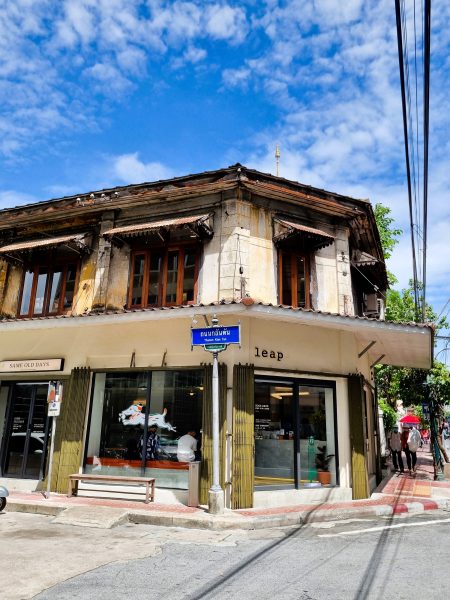
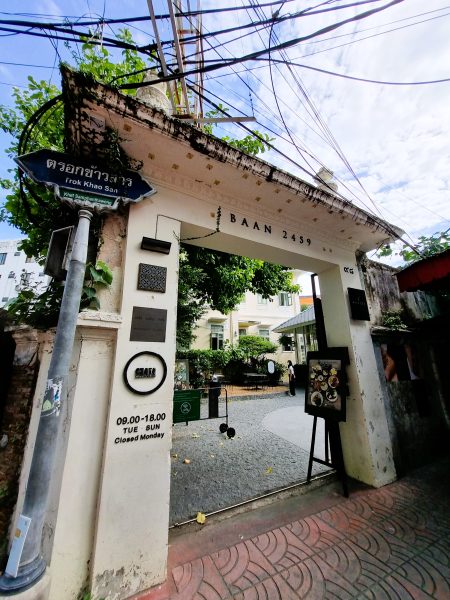
Yaowarat embodies a blend of old and new. Many historic buildings stand as a testament to their architectural heritage. New businesses have been established within these classical structures, preserving their old-world charm while embracing modern lifestyles. Visitors can experience this unique blend firsthand, even at the MRT Wat Mangkon entrance, where the classical ambience is carefully preserved.
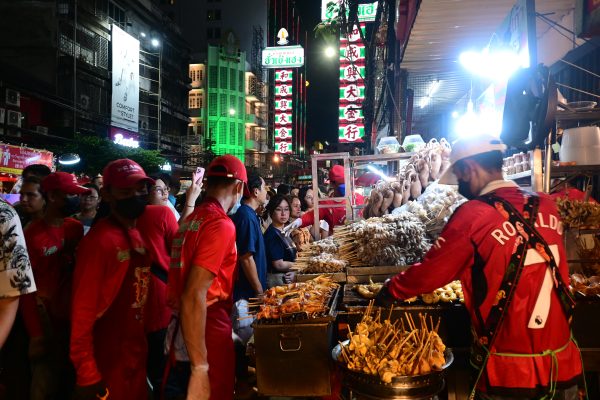
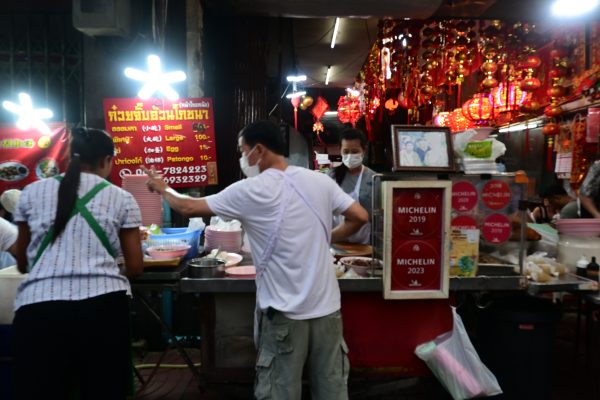
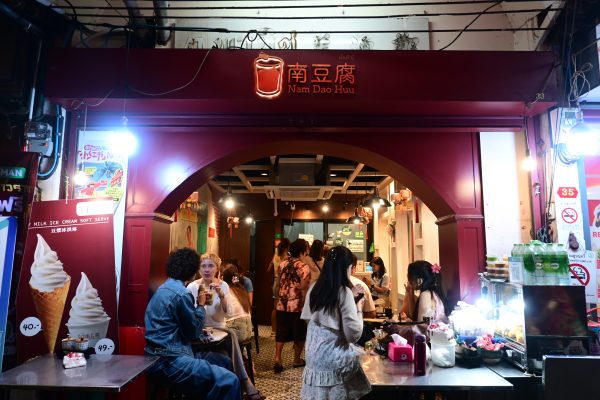
When the sun sets over Bangkok’s vibrant Chinatown, Yaowarat transforms into a bustling culinary paradise that attracts locals and tourists alike. Known for its lively atmosphere and diverse flavours, Yaowarat street food offers a tantalising journey that explores the living legends and local wisdom that imbues Thai-Chinese culinary delights.



